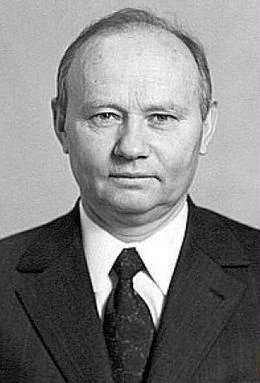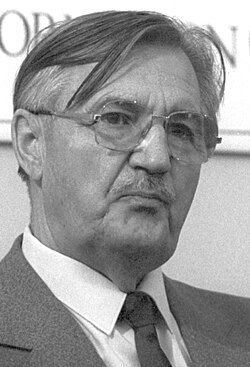Central Committee
The Central Committee of the February Crisis Government, commonly referred to as the February Committee, comprises the seven-member governing council that assumed control of the Soviet Union following the successful coup d'état against Mikhail Gorbachev in February 1989. The committee functions as the supreme decision-making authority for both domestic and foreign policy, operating through consensus mechanisms that prioritize security apparatus input over traditional party structures. Western intelligence assessments indicate the committee represents a coalition of hardline Communist Party officials, senior military leadership, and security service commanders united by opposition to Gorbachev's reform policies and commitment to restoration of centralized authoritarian governance.
Core Leadership
Dmitri Timofeyevich Yazov - General Secretary
 |
Dmitri Timofeyavich Yazov assumed the position of General Secretary following his role as primary architect of the February coup. Yazov's background as a World War II veteran and career military officer shaped his fundamental opposition to Gorbachev's accommodation policies, particularly following the November 1988 Costa Rica confrontation. His military service included combat operations in the Battle of Berlin and subsequent postings in the Group of Soviet Forces in Germany, where he developed expertise in NATO military capabilities and doctrine. Yazov's appointment as Defense Minister in 1987 positioned him to observe what he characterized as dangerous erosion of Soviet military readiness under glasnost policies. Western intelligence assesses that Yazov views renewed confrontation with the United States as inevitable and considers military strength the primary determinant of superpower competition outcomes. His leadership philosophy emphasizes restoration of centralized party control over military and security apparatus, rejection of Western economic integration, and maintenance of Soviet sphere influence through decisive intervention capabilities. |
| Vladimir Kryuchkov retained his position as KGB Chairman while assuming expanded authority over internal security and foreign intelligence operations. Kryuchkov's career progression through KGB foreign intelligence directorates provided extensive exposure to Western intelligence capabilities and Soviet penetration operations, contributing to his assessment that glasnost policies represented fundamental security vulnerabilities. His opposition to Gorbachev intensified following revelations of extensive CIA penetration of Soviet decision-making processes, which Kryuchkov attributed directly to reduced security discipline under reform policies. Western intelligence indicates that Kryuchkov possesses detailed knowledge of Soviet agent networks throughout Europe and North America, positioning him as a critical figure in renewed intelligence confrontation with Western services. His strategic priorities include restoration of comprehensive surveillance capabilities over Soviet society, elimination of independent media and cultural organizations, and expansion of foreign intelligence operations targeting NATO military planning and Western economic vulnerabilities. Kryuchkov's influence extends beyond traditional KGB responsibilities to encompass coordination with Warsaw Pact security services and oversight of suppression operations in Eastern Europe. | |
| Valentin Varennikov assumed the Defense Ministry following Yazov's elevation to General Secretary, bringing extensive airborne and special operations experience to military leadership. Varennikov's combat service in Afghanistan provided direct exposure to Soviet military limitations and contributed to his conviction that military modernization required isolation from Western technological dependencies. His previous role as Deputy Defense Minister involved oversight of Soviet military assistance programs in Third World conflicts, creating familiarity with proxy warfare capabilities and strategic competition dynamics. Western intelligence assesses that Varennikov advocates aggressive military modernization programs prioritizing conventional force improvements over nuclear capabilities, reflecting lessons learned from the Afghanistan experience and anticipated European confrontation scenarios. His leadership approach emphasizes restoration of military discipline and training standards that he considers compromised under Gorbachev's budget constraints and political interference. Varennikov's strategic planning focuses on enhanced intervention capabilities for Eastern European stabilization, improved conventional deterrence against NATO expansion, and development of rapid deployment forces for Third World operations. |


